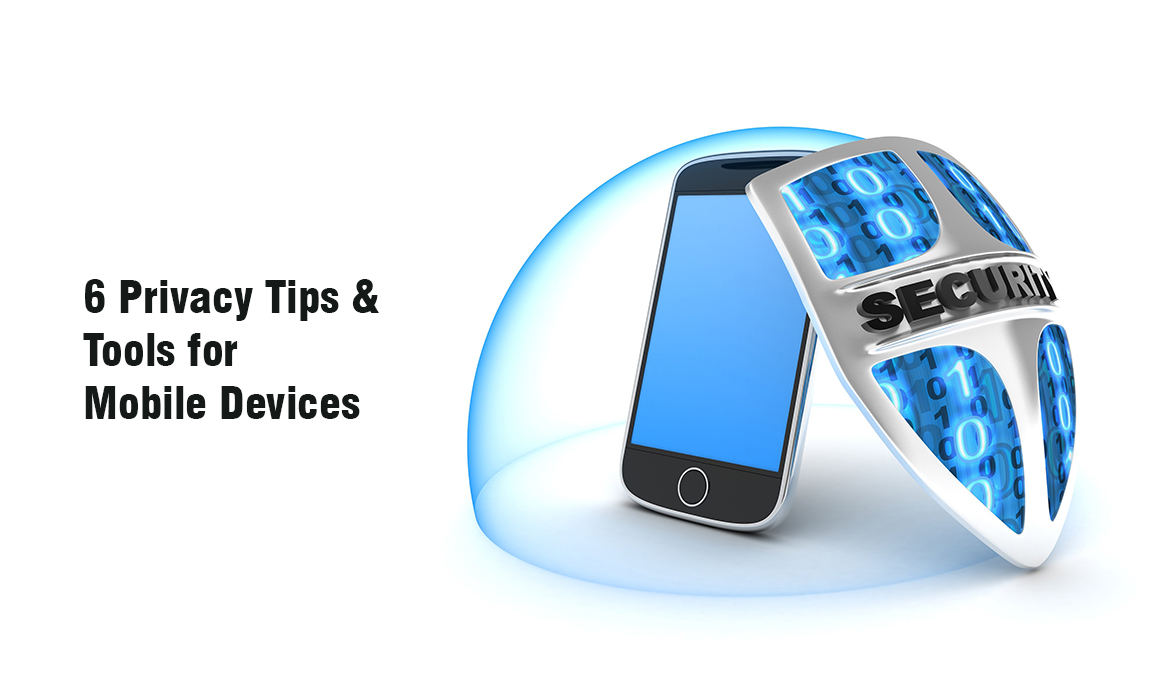How to Protect Your Mobile Phone Privacy
How to Protect Your Mobile Phone Privacy

6 Privacy Tips & Tools for Mobile Devices
If someone gets their hands or your phone, or finds a way to hack your mobile device, they can use the information on there to embarrass you, steal your money, find out where you are, or worse. Thankfully, there are some easy steps you can take to keep that information private.
Thankfully, there are some easy steps you can take to keep that information private.
1. Stick to the App Store:
Even if your phone allows you to install programs
without their app store, you probably shouldn’t.
Your phone’s app store provides reasonable protection against malware. Not only are apps reviewed for malware before they get added to the store, but your phone may even continue to regularly scan app-store installed programs to ensure they are still safe for your device. Outside sources, such as files you download directly from 3rd party websites, can’t promise that same kind of protection.
If you’re running Android, disable the “Unknown Sources” option under your phone’s security settings:
This will guarantee that only apps from trusted sources can be installed.
2. Limit What Your Apps Can Access:
When you install new apps, your phone asks you to confirm the app’s access requirements.Typically, apps need to access things like your files (to save things), your camera (to take photos), and maybe GPS (to provide location-specific content). Some apps may need access to even more: your contacts, your profile information, etc.
While it’s just about impossible to use a smartphone without giving apps access to some of these things, you shouldn’t just agree to every app’s access terms. Many apps make money selling your information to advertisers, so it’s not surprising they want more access than they really need. For instance, does your flashlight app need to know your location?
If you don’t like the access an app is requesting, look around for a similar app that requires less access.
3. Install A Security App:
You wouldn’t let your computer run without antivirus, so why leave your phone unprotected? It doesn’t matter what operating system your mobile device runs or how secure its manufacturer says it is: if you access the Internet with it, your phone is vulnerable to attack.
There are plenty of anti-virus and anti-malware apps available for every type of device. Firewall apps are also handy to make sure no apps are sending or receiving information you’re not aware of.
4. Secure Your Lock Screen:
This seems pretty standard, but most people still don’t do it. Having to type a password every time you want to check your phone is a pain, but it’s worth it. If you lose your phone, without a secure lock screen the thief can access everything on there: your personal files, photos, Facebook account, shopping apps. Does your browser remember your passwords? If so, the thief can now access any site with a saved password.
Still feel safe with just a swipe?
Don’t go for the pattern, either. Sure, it’s
technically more secure that just a swipe, but barely. Take a moment and really
look at your phone’s screen. Give it a bit of sunlight. See anything? If you’ve
been using a pattern to secure your phone, chances are it’s right there in
front of you. We turn our phones on dozens (even hundreds) of times a day.
Unless you clean you screen after every single use, chances are your pattern is
there for anyone to see.
Don’t trust your privacy to anything less than a PIN or password.
5. Set Up Find My Phone and Remote Wipe:
If you haven’t set up these features for your phone, you’re missing out on one of the most powerful security measures you can get… and with most phones, it’s free. If you lose your phone, the Find My Phone feature can help you pinpoint its exact location using the GPS in your phone. Some services will even allow you ring your phone if it’s nearby.
If you can’t get to your phone right away, or you’re afraid someone may have stolen it, you can also remotely wipe all the private data. This way, even if someone manages to crack your newly created, super-secure lock screen password, there won’t be anything on the phone for them to find.
6. Remember, Public Networks Are Public:
Data plans are expensive, and no one wants to waste their precious megabytes when they can surf at the local coffee shop for free. But whenever you connect to a public network, you open your device up to everyone else on that network. Any amateur hacker can use public Wi-Fi to spy on other users in the vicinity.
You don’t have to avoid public Wi-Fi altogether – just be smart about it.
If you do need to visit secure sites or access private data while you’re out, consider using a VPN service. Virtual Private Networks encrypt your activity, so no one on the public network can track it. Many businesses offer VPN service for their employees, allowing them to access the company network from anywhere. Some home routers also offer this service.
Keep Your Mobile Security & Privacy in Mind:
Smartphones are quickly becoming our wallets, our cameras, our notebooks, even our personal safes. You wouldn’t leave any of those just lying around for anyone to pick up and browse.
There’s no way you’re going to stop using your mobile device to manage your secure information. In fact, the more features companies add, the more we rely on them, and the more private information we trust them to store.
Make sure you’re taking the same
precautions with your mobile device.




